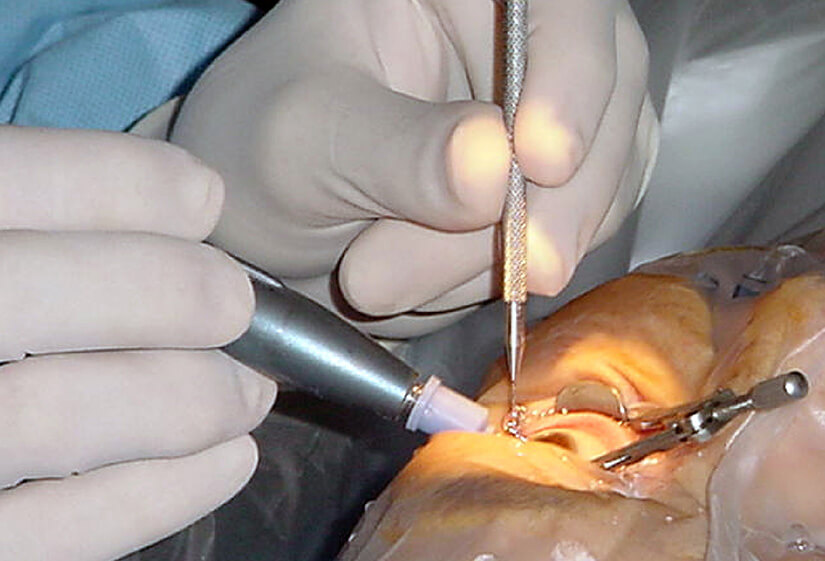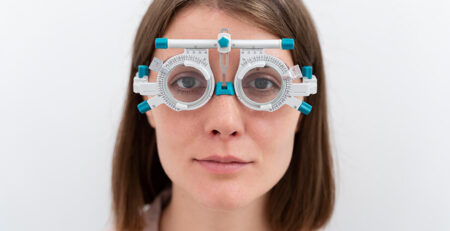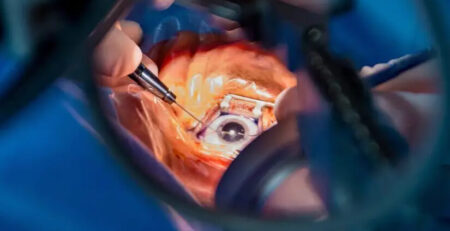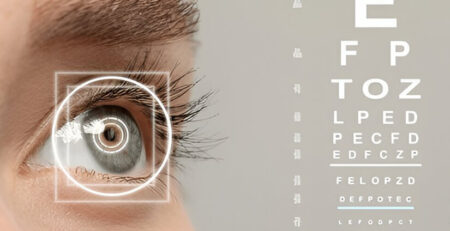How long does Cataract Surgery last?
Imagine a world where everything you see is blurred or clouded as if you’re looking through a foggy window. This is what living with cataracts feels like—a common eye condition that affects millions worldwide, particularly as they age. But fear not because cataract surgery offers a remarkable solution, restoring clarity to your vision. But how long does this sight-saving procedure actually take?
If you’ve been wondering about the duration and what to expect ahead, you’re reading the right blog.
The Procedure: A Brief but Life-Changing Event
Cataract surgery is often perceived as a lengthy, daunting procedure, but in reality, it is a quick and virtually painless process. From the moment you step into the operating room until the procedure is completed, the surgery itself generally lasts between 15 to 20 minutes. Yes, you read that correctly—just a matter of minutes for a surgery that can drastically improve your quality of life.
However, while the actual surgery is brief, the total time you spend at the clinic will be longer, around 2 to 3 hours. This includes pre-operative preparation, which involves administering dilating eye drops and, local anaesthesia, and post-operative observation. The surgical team ensures that everything is set for your comfort and safety during the cataract treatment.
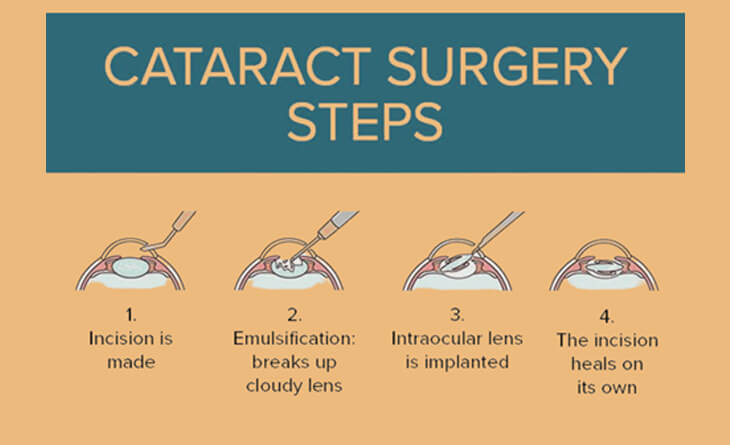
Step-by-Step Breakdown of Cataract Surgery
To fully understand the duration, let’s walk through the key steps of cataract surgery:
- Preparation: Before the surgery begins, you will receive eye drops to dilate your pupils and a local anaesthetic to numb the area around your eye. This preparation ensures you are comfortable and pain-free during the procedure, which takes 30 to 40 minutes.
- Incision and Lens Removal: The surgeon makes a small incision in your cornea to access the clouded lens. Using ultrasound energy, the cataract is broken into tiny fragments, which are then gently suctioned out. This part of the cataract surgery is incredibly delicate and lasts about 10 minutes.
- Intraocular Lens Implantation: After removing the cataract, a clear artificial lens, known as an intraocular lens (IOL), is inserted into the same location. This new lens will help focus light correctly onto your retina, restoring clear vision.
- Recovery and Monitoring: Once the cataract surgery is complete, you’ll spend some time in the recovery area. Your eye will be covered with a protective shield, and the medical team will monitor you for any immediate post-operative concerns. You can expect to be in recovery for about 30 minutes to an hour.
Is There More Than One Type of Cataract Surgery?
Absolutely! There are primarily two types of cataract surgeries—Phacoemulsification (Phaco) and Femtosecond Laser-Assisted Cataract Surgery (FLACS).
- Phacoemulsification is the most common technique, where ultrasound waves break up the cataract before removal.
- Femtosecond Laser-Assisted Cataract Surgery is a more advanced option that uses laser technology to create the incision and soften the cataract. While this method may take slightly longer due to the added precision, it still falls within the same overall time frame.
Both methods are effective and generally take the same amount of time, though your Eye Doctor in Delhi will guide you on the best option based on your specific condition.
What Happens After the Surgery?
Once the cataract treatment is complete, the recovery process begins. While the surgery itself is short, full recovery can take several weeks. You will likely experience clearer vision within a few days, but it’s important to follow your eye doctor’s instructions carefully to ensure optimal healing. This includes using prescribed eye drops, avoiding strenuous activities, and attending follow-up appointments.
How Long Do the Results of Cataract Surgery Last?
One of the most remarkable aspects of cataract surgery is its longevity. Once the cloudy lens is removed and replaced with an intraocular lens (IOL), the results are typically permanent. The new lens does not degrade over time, which means that the clarity of vision you achieve after cataract surgery can last a lifetime. However, it’s worth noting that some patients may experience a condition known as posterior capsule opacification (PCO) months or even years after the surgery. This occurs when the membrane holding the IOL becomes cloudy, mimicking the symptoms of cataracts.
Fortunately, this can be easily treated with a quick, non-invasive laser procedure called YAG laser capsulotomy, which restores the clarity of your vision almost immediately. Overall, with proper care and regular check-ups, the results of cataract surgery are enduring, allowing you to enjoy clear vision for many years to come.
Suppose you notice any changes in your vision after cataract surgery, such as cloudiness or blurriness. In that case, it’s important to consult your eye doctor promptly to address the issue and maintain your clear vision.
The Importance of Choosing the Right Specialist
Choosing an experienced eye specialist is crucial for the success of your cataract surgery. The precision, care, and expertise required cannot be understated. If you’re looking for the best cataract treatment in Delhi, you’ll want to consult with a specialist who has a track record of excellence.
Your Vision, Our Priority
At the end of the day, cataract surgery is more than just a procedure—it’s a gateway to a clearer, brighter future. If you or a loved one is struggling with the effects of cataracts, there’s no need to live in the shadows of blurry vision. Dr. Anisha Gupta, a renowned eye specialist in New Delhi, is dedicated to restoring your vision with state-of-the-art cataract treatment.
With her expert care and personalized approach, you can step confidently into the light with the clear vision you deserve. Book your consultation today and take the first step toward a brighter tomorrow.

